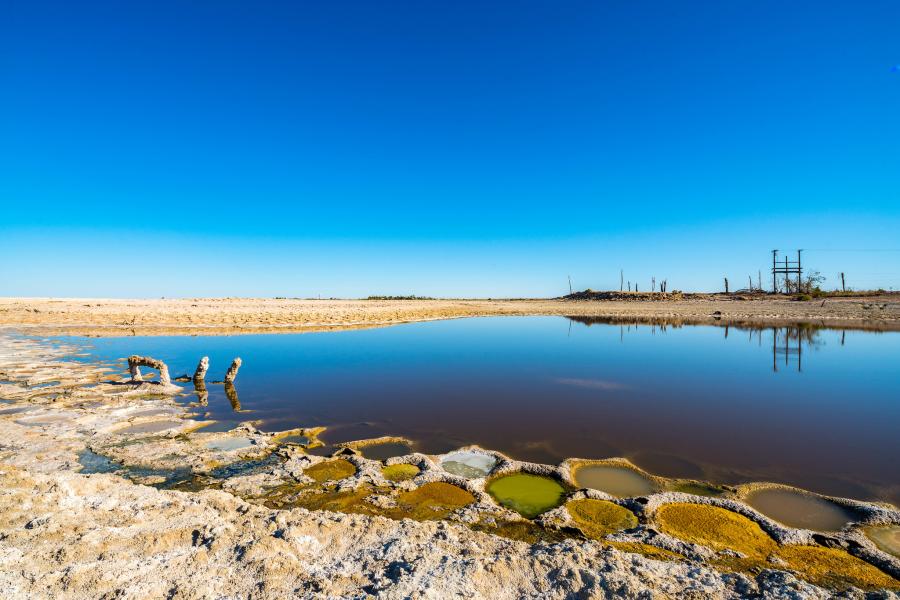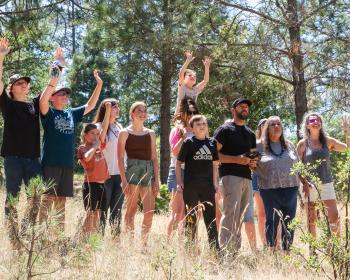By Kim Maida
On March 16, 2018, the International Human Rights Advocacy Workshop at the University of Arizona, Rogers College of Law submitted a report to the United Nations, titled Indigenous Resistance to the Dakota Access Pipeline: Criminalization of Dissent and Suppression of Protest. The report was produced on behalf of the Water Protectors Legal Collective, the legal team that is providing support for Dakota Access Pipeline (DAPL) resistors including legal advocacy, jail and court support, criminal defense, and human rights protection.
Professor Seanna Howard, Director of the International Human Rights Advocacy Workshop, hosted a panel discussion at the 17th session of the United Nations Permanent Forum on Indigenous Issues (UNPFII) on April 19, 2018, where the report was presented to human rights scholars and UN experts. The event covered the criminalization of Indigenous protesters both in the context of DAPL and more broadly across the world. Panelists at the event included Professor Howard, Indigenous human rights lawyer Michelle Cook (Navajo/Dine), host of the Sacred Stone Camp at Standing Rock LaDonna Brave Bull Allard (Lakota), UNPFII member Elifuraha Laltaika, member of the African Commission on Human and Peoples’ Rights Kanyinke Sena, and American Indian Law Clinic Director at the University of Colorado Carla Fredericks.
The report was submitted in response to a call for contributions to a thematic report on the criminalization of Indigenous human rights defenders worldwide made by the UN Special Rapporteur on Indigenous Issues, Victoria Tauli-Corpuz. In a report about her visit to the United States in February 2017, Tauli-Corpuz highlighted human rights violations committed against water protectors during the DAPL protests. Echoing Tauli-Corpuz’s concerns over the criminalization of Indigenous peaceful protestors, the report submitted by the International Human Rights Advocacy Workshop calls for further attention by UN human rights bodies.
It details “the government’s use of excessive force and mass arrests to threaten, intimidate, and silence water protectors seeking to defend their lands, resources, and culture”. It notes that between September 2016 and February 2017, “76 law enforcement agencies, federal agencies and private security firms hired by the oil company” were present at the Standing Rock camp where thousands of Indigenous water protectors resisted the construction of the Dakota Access Pipeline. These law enforcement agencies and private security groups used “heavy-duty riot gear and military grade weapons” against peaceful water protectors. Atrocities were carried out against the protestors by law enforcement using “a Long Range Acoustic Device sound weapon, explosive tear gas grenades, chemical agents, tasers, rubber bullets and batons”. The report notes that the most violent attacks occurred on November 20, 2016 when law enforcement used “high pressure fire hoses to spray water protectors, and shot Specialty Impact Munitions (SIM), chemical canisters, explosive teargas and “stinger” grenades indiscriminately into the crowd over a period of about ten hours, without any warning.” Over 200 people were injured as a result of this violent onslaught. There is currently a class action suit advancing in the U.S. District Court in Bismarck, North Dakota on behalf of those injured on November 20.
In addition to facing violent attacks, hundreds of water protectors are currently facing charges for exercising their rights to free expression and peaceful assembly. According to the report, the seven federal defendants facing the most severe charges are all Indigenous. Based off of information provided by the Water Protectors Legal Collective, the report notes that “many of the criminal cases should never have been brought or continued due to lack of evidence and witnesses, lack of probable cause and legal defenses or privilege and lawful conduct”. It notes that of the 832 initial cases, 300 remain opened and unsolved.
Both at the UN event and in the report, it is emphasized that Indigenous peoples are “particularly vulnerable” human rights defenders who are targeted by state and non-state actors. The horrors that occurred at Standing Rock fit into a pattern of violence and discrimination seen worldwide committed against Indigenous peoples fighting to protect their lands and way of life. There is a desperate need for States to not only uphold the rights of Indigenous peoples but to also hold those responsible for carrying out human rights violations accountable. The report ends with the following list of recommendations to the United States:
- Review and reconsider criminal proceedings against water protectors and direct prosecutors to seek proportionate penalties for protesters who violate the law
- Investigate, punish, and provide appropriate reparations for all human rights violations, including the use of excessive force and mass arrests in response to DAPL opposition; OR convene a truth commission with the Indigenous representative institutions of the Oceti Šakowiŋ
- Adopt a regulatory framework to supervise and monitor activities of extractive industries and energy companies, private security firms and other non-state actors to prevent human rights violations in regard to activities that affect Indigenous peoples and their lands
- Provide training to law enforcement and private security on best practices for managing peaceful demonstrations; the right to free expression and assembly; and Indigenous peoples rights under international law
- Implement national measures to protect Indigenous human rights defenders in compliance with the UN Declaration on Human Rights Defenders, the UN Declaration on the Rights of Indigenous Peoples and other international standards to ensure the full enjoyment of their rights to free expression and assembly
- Issue executive order regulating and restricting transfer of military-grade weapons and equipment to local law enforcement
- Reject or amend state legislation that violates the right to free assembly
- Ensure that state and local emergency powers are not abused in the context of social protest
- Implement the UN Declaration on the Rights of Indigenous Peoples and recommendations on Indigenous peoples rights issued to the United States by the UN Treaty Bodies, Universal Periodic Review process, UN Special Procedures and the Inter-American System of Human Rights



